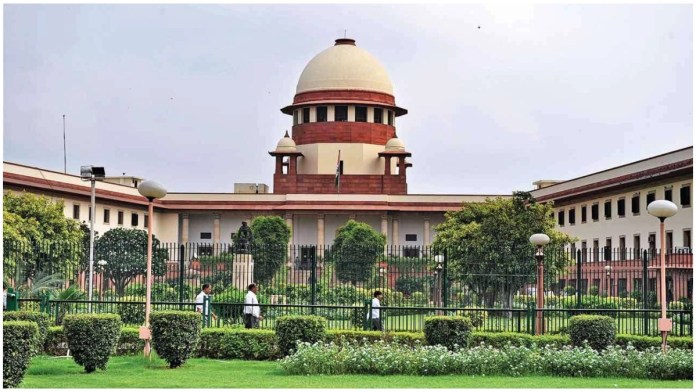While the Supreme Court could not have named Christianity and Islam while forbidding religious organisations from coercion or allurement in the process of their purported act of charity is likely to work against these faiths, given that the communities following them alone betray the proclivity of luring people to their fold or threatening them to submission. Going by the recent spree of ‘conversions’ by Ambedkarite and Periyarite Buddhists, the observation of the highest court may go against them too.
Supreme Court frowns at conversion brigade
The Supreme Court bench of Justices MR Shah and CT Ravikumar, hearing a plea filed by advocate Ashwini Kumar Upadhyay seeking direction to the union government and states to take stringent steps to control fraudulent religious conversion by “intimidation, threatening, deceivingly luring through gifts and monetary benefits”, said, “The purpose of charity should not be conversion; every charity or good work is welcome, but what is required to be considered is the intention.”
Acknowledging that forced religious conversion was a very serious matter, the bench observed, “Do not take it as adversarial. It is a very serious issue. Ultimately it is against our Constitution. When everyone stays in India, they have to act per the culture of India.”
Forced religious conversion may pose a danger to national security and impinge on the religious freedom of citizens, the top court had said on 14 November, asking the union government to step in and make sincere efforts to tackle the “very serious” issue. “It is a very serious issue that affects the security of the nation and freedom of religion and conscience. Therefore, it is better that Union of India may make their stand clear and file counter on what further steps can be taken to curb such forced conversion,” the bench led by Justices MR Shah and Hima Kohli had said that day.
The apex court will now take up the matter on 12 December.
How Supreme Court snubbed pro-conversion side
When a lawyer questioned the maintainability of the plea, the bench said, “Do not be so technical. We are here to find a solution. We are here for a cause. We are here to set things right. If the purpose of the charity is good then it is welcome but what is required to be considered is the intention.
“Do not take it as adversarial. It is a very serious issue. Ultimately it is against our Constitution. When everyone stays in India, they have to act per the culture of India,” the bench observed.
Forced religious conversion may pose a danger to national security and impinge on the religious freedom of citizens, the top court had said recently, asking the union government to step in and make sincere efforts to tackle the “very serious” issue.
Is the Modi government disallowing the ‘call of conscience’ as detractors allege?
No way. While the leftist section of the mainstream media made this allegation in some recent articles, those pieces are technically not sound. The union government had told the court it was collecting information from states on religious conversion through means such as “intimidation, threatening, deceivingly luring through gifts and monetary benefits”.
Appearing before the bench, Solicitor General Tushar Mehta had sought time to furnish detailed information on the issue. “We are gathering information from the states. Give us a week’s time,” Mehta said. He said statutory the regime would determine whether a person was converting due to some change in belief, which establishes that the Narendra Modi government is still allowing people to convert, provided they can prove it was because of a genuine change of their faith rather than due to greed or fear.
Is this a ban on conversion?
No. This is not even a verdict. This is an observation by the Supreme Court, albeit an important one. Even an obiter dictum (passing mention) by a judge of the highest court has a legacy value; for example, a judge’s (Justice JS Verma in the Ramesh Yeshwant Prabhoo vs Shri Prabhakar Kashinath Kunte case in 1996) comment that Hinduism or “Hindutva is a way of life” stuck and now what was rhetoric is mouthed by orators and debaters often with or without context.
While an obiter dictum is “a remark made by a judge which the jury does not have to pay attention to” (Oxford English Dictionary definition) in judicial systems where judgments are based on the opinions of jurists, in the Indian legal context, it is an observation made by a judge in the course of hearings, which might not have a bearing on the verdict.
When the Supreme Court finally issues the verdict of this case, one can figure out whether today’s observation by the judges guided the judgment and hence whether or not asking religious organisations not to eye a chance for conversion while doing charity was an obiter dictum.
What the apex court said today is not to help people with the ulterior motive of converting them. “The purpose of charity should not be conversion; every charity or good work is welcome, but what is required to be considered is the intention,” the court said today, rejecting the plea challenging the maintainability of Upadhyay’s PIL.




You must log in to post a comment.